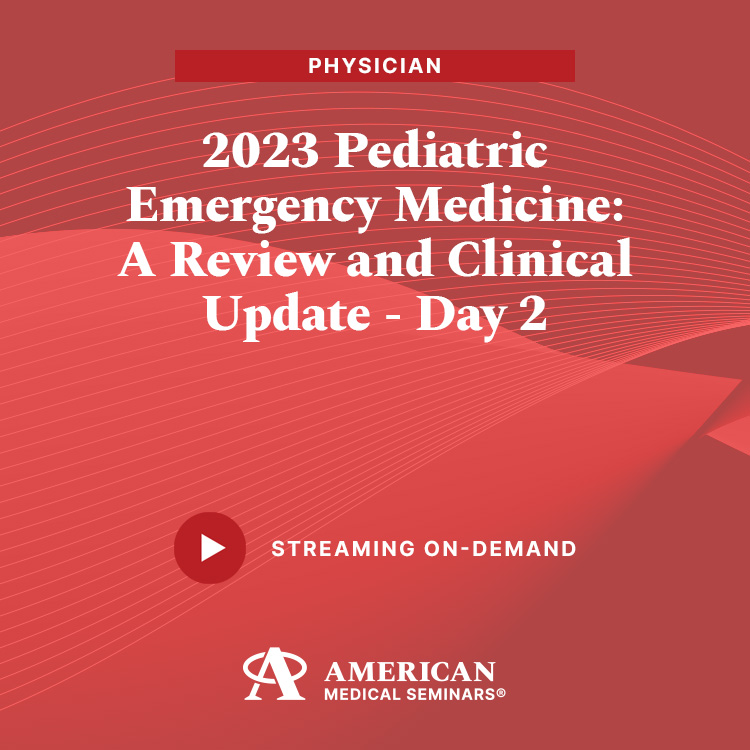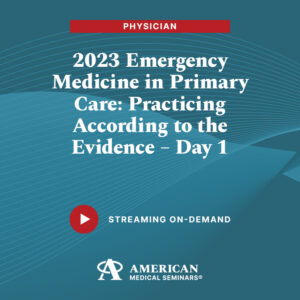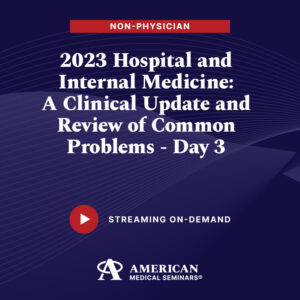Title: Pediatric Emergency Medicine: A Review and Clinical Update – Day 2 (Physician)
Faculty: John Loiselle, M.D., F.A.A.P.; Rakesh Mistry, M.D., M.S.; Richard Scarfone, M.D., F.A.A.P.
Release Date: 7/1/2023 Expiration Date: 7/1/2026
Day 2
Clinical Clues to Detecting Child Physical Abuse
Upon completion of this session, the participant should be able to: COMP, GL
- Identify findings that are characteristic of physical abuse.
- Distinguish physical findings often confused with physical abuse.
- Formulate further evaluation based on the most recent AAP guidelines.
Teaching Pearls You Should Know
Upon completion of this session, using data and results from clinical trials and referenced EBM, the participant should be able to: EBM, COMP
- Use test characteristics such as positive predictive value to interpret diagnostic test results.
- Order diagnostic tests appropriately by considering risks and benefits.
- Apply key teaching points to enhance the management of specific diagnostic conditions.
Managing Animal Bites
Upon completion of this session, the participant should be able to: COMP, GL
- Identify those bites that are at particular risk of infection.
- Summarize the arguments for and against the use of prophylactic antibiotics in specific bite wounds.
- Match specific infecting organisms with the biting animal.
- Provide animal bite prevention strategies for your patient families.
- Apply ACIP and AAP guidelines when providing Rabies and Tetanus immunizations to patients who have sustained an animal bite.
Management of Acute Asthma
Upon completion of this session, using evidence-based guidelines, the participant should be able to: EBM, GL, COMP
- Apply evidence from the Cochrane Database to make decisions about utilizing either nebulizers or metered-dose inhalers with spacers to deliver beta2-agonists to appropriate candidates.
- Summarize the evidence supporting the use of ipratropium bromide and corticosteroids for moderately ill asthmatic children.
- Develop an organized approach to the initial management of children with severe asthma.
Improving Medical Decision Making: Patient Safety and Strategies to Avoid Diagnostic Errors
Upon completion of this session, the participant should be able to:
- Acknowledge that relying on pattern recognition and memory and making snap judgments may lead to diagnostic errors.
- Explain the cognitive errors that physicians make most frequently.
- Develop an approach to medical decision-making that will help prevent committing diagnostic errors.
- The receipt for any incentive-associated purchase will designate the value of the gift card separately from the cost of the learning activity.
- This incentive may have implications on your tax reporting obligations. Any reimbursed amount must be declared as personal income for tax purposes.



